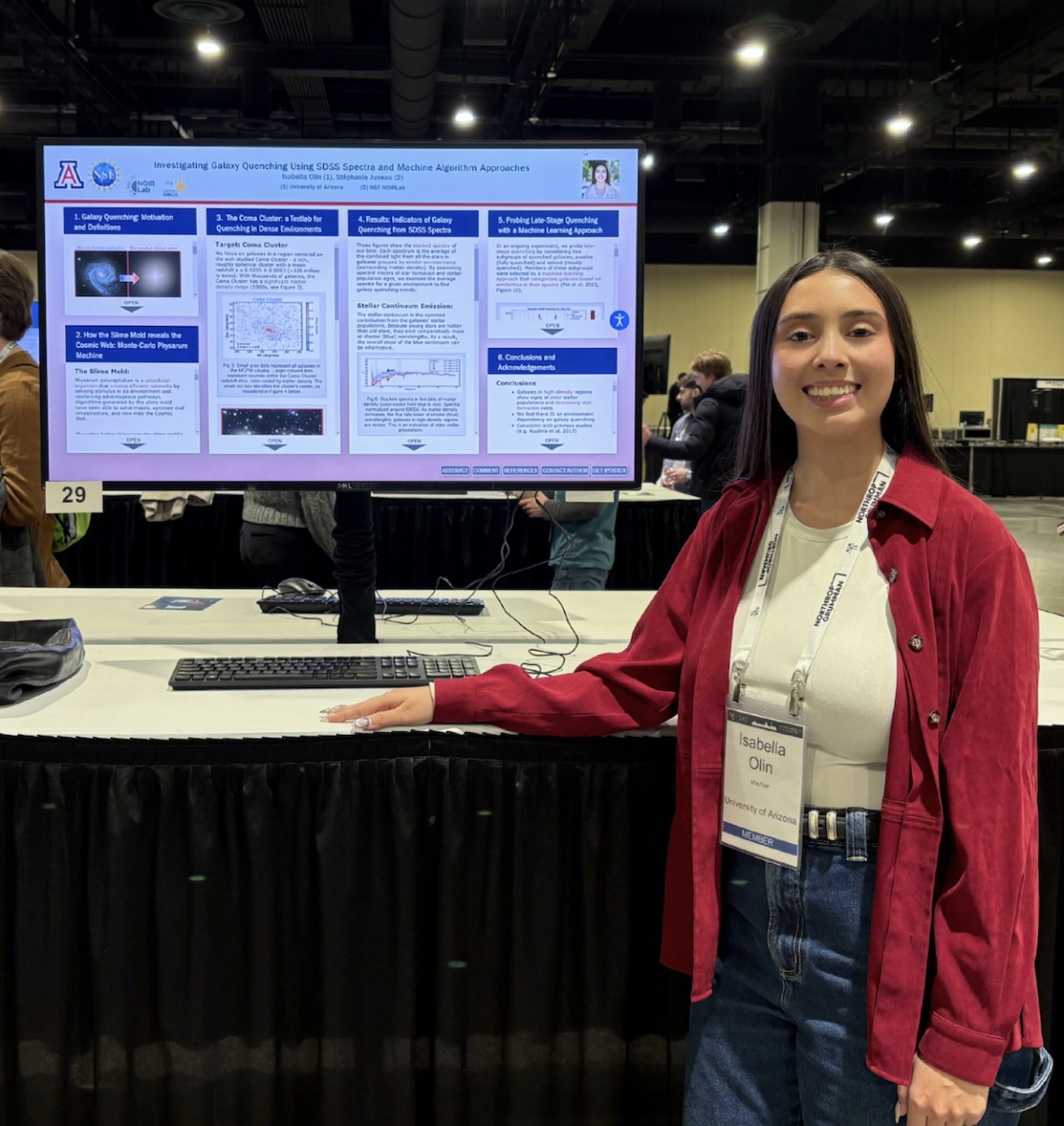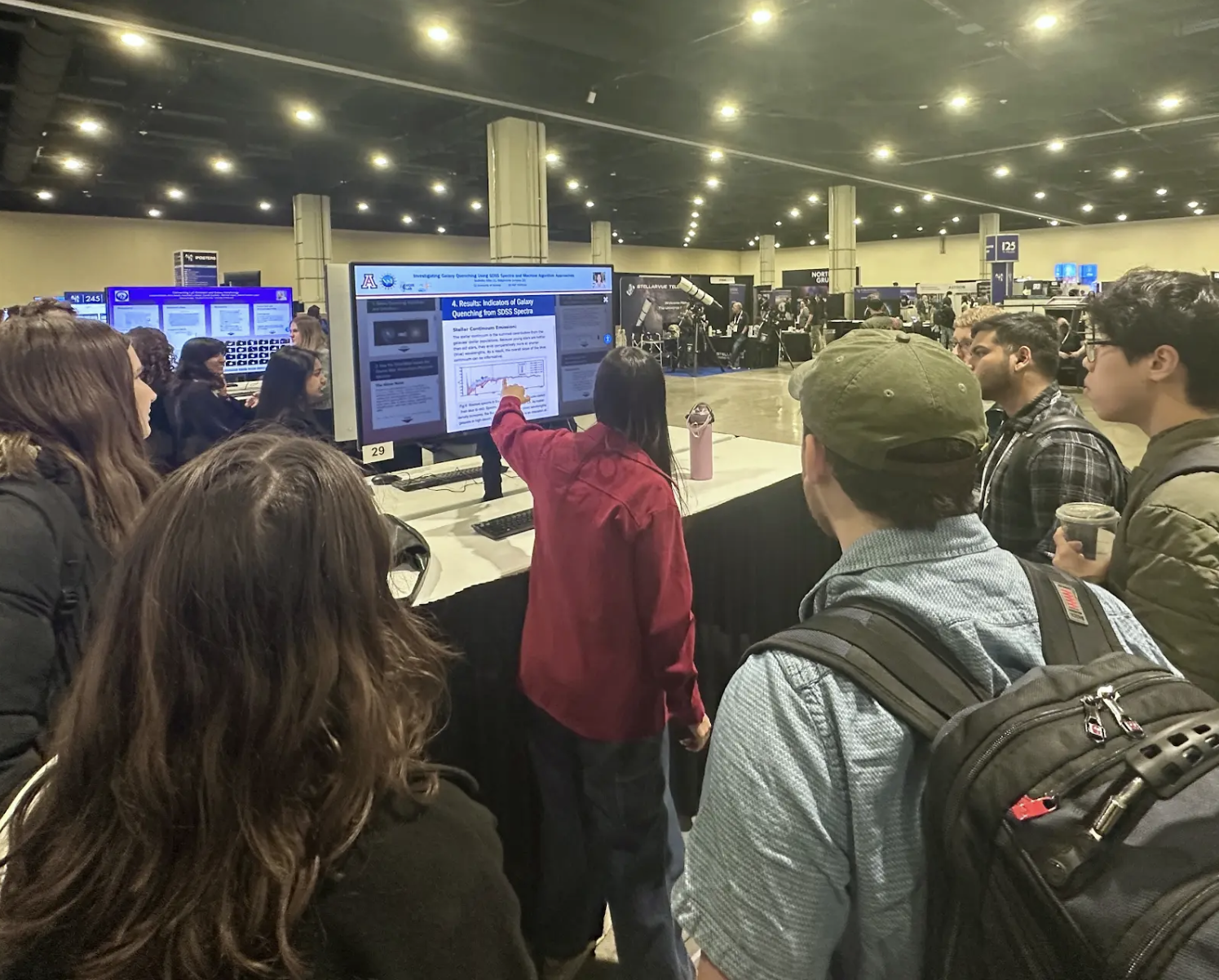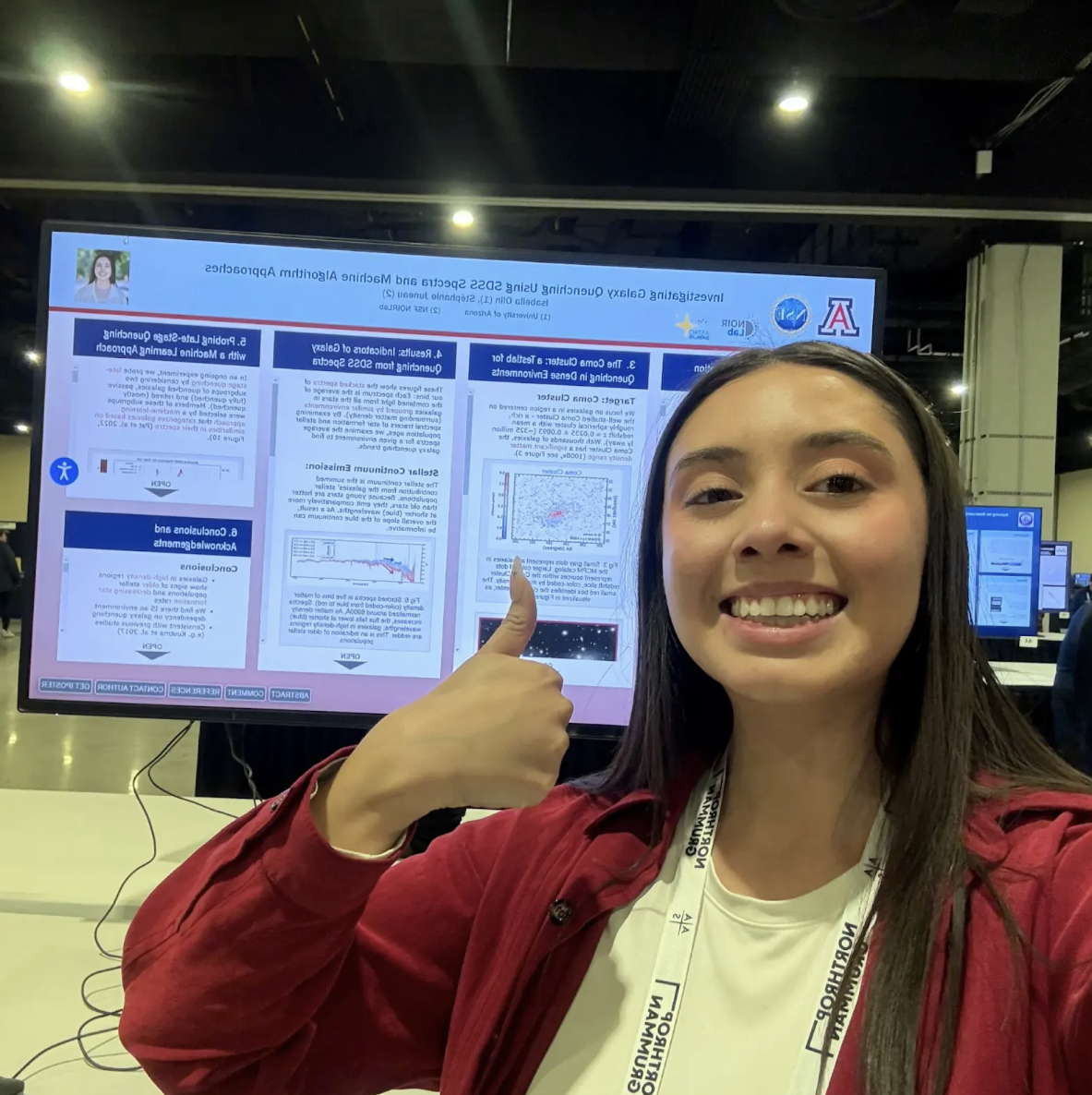Isabella Olin: Winner of AAS Chambliss Student Poster Competition Honorable Mention

Astronomy major Isabella Olin won an Undergraduate Honorable Mention for the Chambliss Astronomy Achievement Student Award at this year's AAS meeting, for her poster presentation on why galaxies stop forming stars.
Isabella Olin, astronomy major and former president of the University of Arizona Astronomy Club, has won an Undergraduate Honorable Mention for the Chambliss Astronomy Achievement Student Award at the 245th American Astronomical Society meeting in National Harbor, Maryland. Isabella was one of 450 students from around the nation who entered the competition—of those, 150 were selected as finalists to present to the judges at AAS, and 14 received honorable mentions. “I had a great time attending workshops, meeting new people, and seeing the current research conducted by other astronomy fields,” she says.
Isabella, whose advisor is Stephanie Juneau at NOIRLab, presented her poster on the question, “why do galaxies stop forming stars?” Hear about Isabella’s astronomy experiences in her own words, below!
What brought you to astronomy and to Steward Observatory?
The funny thing is that when I first got to the University of Arizona, I was only a Physics Major. But I had always loved space, fitting the cliche of watching the cosmos and wondering what secrets the universe was waiting for us to discover. So, I enrolled in an Astronomy Gen Ed taught by the amazing Don McCarthy, despite the course not counting towards any of my required credits. Don's class reminded me of that childlike wonder, introduced me to the wonderful astronomy community on campus, and convinced me to pursue a degree (and eventually a career) in Astronomy. And what better place to do so than Steward Observatory!? I was largely drawn to the UofA's Astronomy Program for its large involvement in NASA projects and plentiful opportunities for undergraduate research.
Describe your research!
The research I presented at AAS seeks to answer the broad question: Why do galaxies stop forming stars? From observing distant galaxies early in the Universe and those closer to home, we notice a trend. Over time, galaxies stop forming stars, a phenomenon known as quenching. We investigate the relationship between environment (cosmic matter density) and galaxy quenching by analyzing SDSS spectra of galaxies in the rich Coma Cluster. The galaxies in the cluster are binned by their matter density and their spectra are stacked accordingly. From this, we found that as matter density increases, galaxies show signs of older stellar populations and less active star formation, indicating that there IS a relationship between environment and quenching.

Isabella Olin presents her poster to a crowd at the AAS conference in Maryland
What is your greatest point of pride from your time at Steward Observatory?
My time as President of the University of Arizona's Astronomy Club (December 2022 - May 2024) is my greatest point of pride from my time at Steward. During my presidency, the club engaged ~60 club members in weekly meetings, fostering an active astronomy community on campus and creating opportunities for students to volunteer around Tucson and showcase their research. Most notably, in Spring 2024, I felt there were not enough opportunities on campus for Astronomy undergraduates to formally present their work. Many undergrads create their first posters or talks for "large" conferences and do not have prior experience communicating their science. So, I worked with Rebecca Lipson from TIMESTEP and Ed Prather in the Astronomy Department to coordinate an Undergraduate Astronomy Research Symposium. The event was successful with 14 presenters and over 70 attendees.
Can you share a piece of wisdom from your time as an astronomy student at Steward Observatory?
My main point of wisdom from my time as an astronomy student is to not be afraid to ask for what you want and pursue what you love. I wouldn't have attended AAS and been awarded this Honorable Mention if I hadn't first asked my advisor for their help in getting me there. And I feel satisfied graduating with a Bachelor's in Astronomy and now pursuing a Master's in Education to work in Astronomy Education because it is what truly motivates me, even if it's not the path I thought I'd be taking just a couple of years ago.

Isabella Olin with her winning poster at the 245th AAS meeting

